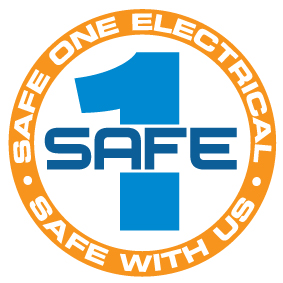Regular electrical inspections are crucial for maintaining a safe and efficient home. Many homeowners may overlook this important task, but understanding the benefits can help you prioritize it. Let’s explore why these inspections are necessary and what they can do for you.
What is the Purpose of Regular Electrical Equipment Inspections?
The primary purpose of electrical inspections is to ensure that your electrical systems are safe and functioning correctly. Inspectors check for potential hazards, wear and tear, and compliance with electrical codes. This process helps prevent electrical fires and equipment failures.
Why is It Important to Have Your Home’s Electrical System Inspected Regularly?
- Safety First: Regular inspections help identify dangerous issues, such as faulty wiring or overloaded circuits. This is key to keeping your home safe from electrical fires.
- Preventative Maintenance: Just like regular check-ups at the doctor, electrical inspections can catch problems before they become serious. Early detection can save you time and money in repairs.
- Compliance with Regulations: Many areas have regulations that require periodic electrical inspections. Staying compliant can help avoid fines and ensure your home is up to code.
Benefits of Electrical Inspections
- Increased Safety: Regular inspections enhance the safety of your home by identifying potential hazards.
- Lower Insurance Costs: Having a well-maintained electrical system can lead to lower homeowner’s insurance premiums.
- Improved Efficiency: Inspections can highlight ways to enhance energy efficiency, which may reduce your electricity bills.
- Peace of Mind: Knowing that your electrical system is in good shape gives you peace of mind, especially when using major appliances or during storms.
What Will Fail an Electrical Inspection?
Here are some common issues that can cause an electrical inspection to fail:
- Exposed Wiring: Any wiring that is damaged or improperly insulated.
- Overloaded Circuits: Circuits that exceed their capacity can pose serious risks.
- Missing Grounding: Lack of proper earthing can lead to dangerous electrical shocks.
Electrical Inspections Checklist
When you prepare for an inspection, it’s helpful to have a checklist. Here are some key items to review:
- Check for signs of wear on outlets and switches.
- Ensure all circuits are properly labeled.
- Inspect the electrical panel for any corrosion or damage.
- Look for any flickering lights or tripped breakers.
Regular Electrical Preventive Maintenance
Regular preventive maintenance not only ensures safety but also prolongs the life of your electrical systems. This includes:
- Regular checks of wiring and connections.
- Keeping circuits free from overload.
- Updating old or faulty equipment.
Benefits of Electrical Safety
Investing in regular electrical inspections provides numerous safety benefits:
- Reduces the risk of electrical fires.
- Protects your appliances from damage caused by electrical faults.
- Enhances overall home safety for your family.
Conclusion
Regular electrical inspections are not just a good idea; they are essential for ensuring the safety and efficiency of your home. By prioritizing these inspections, you protect your family, save money, and enhance the longevity of your electrical systems. If you haven’t scheduled your inspection yet, now is the perfect time!
